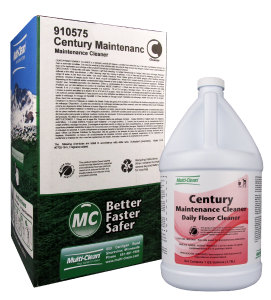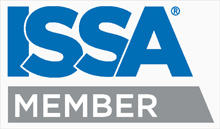Reducing Floor Stripping
Floor stripping is one of the most costly and labor-intensive maintenance activities in any facility, not to mention environmental and health concerns with the chemicals and in some cases the time needed to shut down areas to traffic during maintenance. For all these reasons, we are all looking for ways to reduce or eliminate floor stripping.
While you can’t completely eliminate the need to strip floors, you can greatly reduce the frequency of floor stripping. The key to reducing floor stripping is proper maintenance of floors. Proper maintenance includes keeping dirt and soil from getting to the floor, preventing it from becoming embedded in the floor, and using alternative methods to restore floors without doing a full chemical strip. These tips can help keep floors cleaner and glossier for longer, reducing the need to strip and recoat the floor.
Matting – One of the keys to keeping a floor clean is entry matting or walk-off matting. This is matting that is placed at the entrances to a facility, which functions to collect dirt and soil and keep it at the door. This prevents the dirt from being spread throughout the facility and becoming embedded into the floor. It is recommended to have at least 10 feet of walk-off matting at the entrance to your facility. Having proper matting keeps dirt at the door, making it much easier and cost-effective to remove it from the facility, and will also help keep floors looking cleaner and glossier for longer, ultimately reducing the need for floor stripping.
 Daily Cleaning – It is important to properly clean your floors to keep dirt off of the floor and prevent it from becoming embedded in the floor, leading it to become dull, yellow, and worn. Floor should be dry mopped and cleaned daily with a neutral pH floor cleaner. Higher pH all-purpose cleaners are suitable to use periodically, but the alkalinity can cause the floor to wear down faster and be more susceptible to dirt. Daily cleaning with the proper neutral pH cleaner, such as Multi-Clean’s Century Maintenance, can greatly improve the life of a floor.
Daily Cleaning – It is important to properly clean your floors to keep dirt off of the floor and prevent it from becoming embedded in the floor, leading it to become dull, yellow, and worn. Floor should be dry mopped and cleaned daily with a neutral pH floor cleaner. Higher pH all-purpose cleaners are suitable to use periodically, but the alkalinity can cause the floor to wear down faster and be more susceptible to dirt. Daily cleaning with the proper neutral pH cleaner, such as Multi-Clean’s Century Maintenance, can greatly improve the life of a floor.
Scrub & Recoat – Over time, it is inevitable that a floor will become dull, worn, and yellowed. Using a restorative process is an option to help prolong the life of the floor without having to do a full chemical strip. One such option is a scrub & recoat. As its name suggests, a scrub & recoat consists of two steps: a scrub and a recoat. First an automatic scrubber is used to lightly sand the floor, removing the top coats of the finish where the dirt is embedded. This leaves the undercoats of the finish, which are largely untouched by dirt. Then the floor is coated with fresh floor finish, providing restored gloss and durability to the floor. Using a process such as this is a great way to significantly prolong the life of a floor and reduce the need for chemical floor stripping.
Although the need to chemically strip a floor cannot be completely eliminated, following these key tips can help to greatly improve the life and look of the floor. For more information on floor care, visit Multi-Clean’s Floor Care Systems page and check out our Guide Sheets on all the floor care procedures you need to know.


